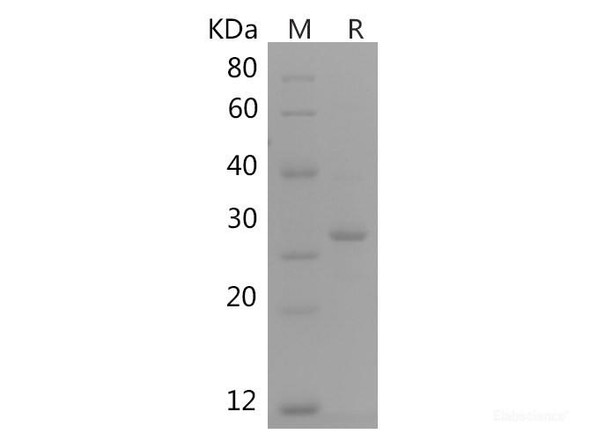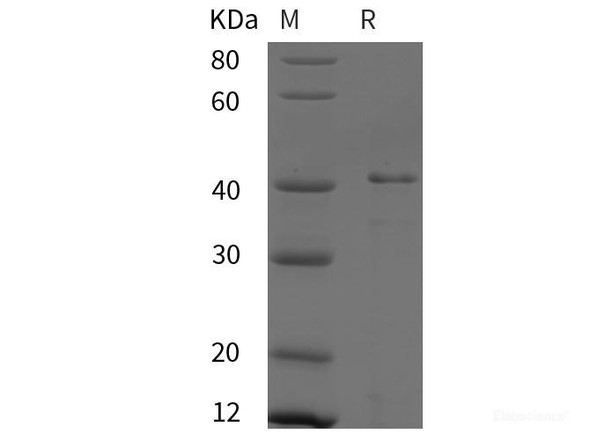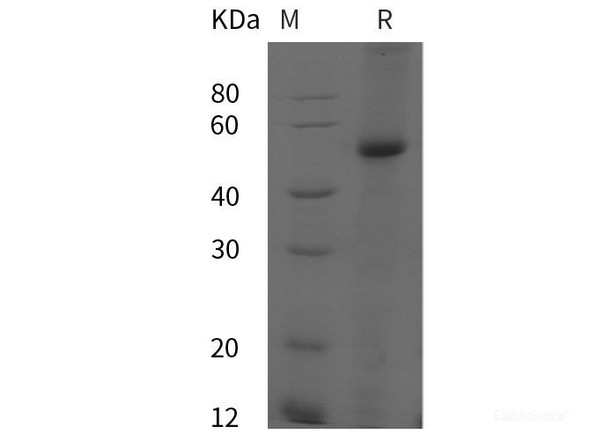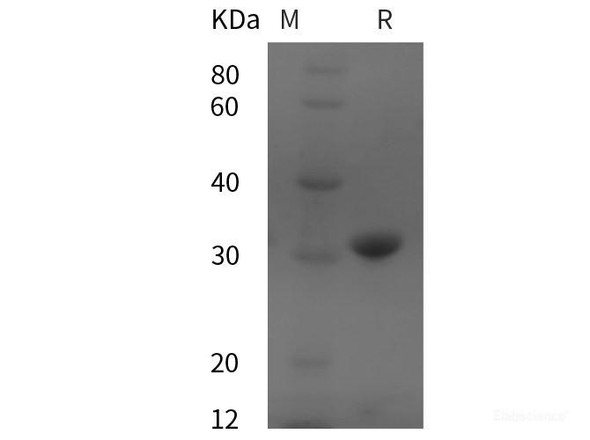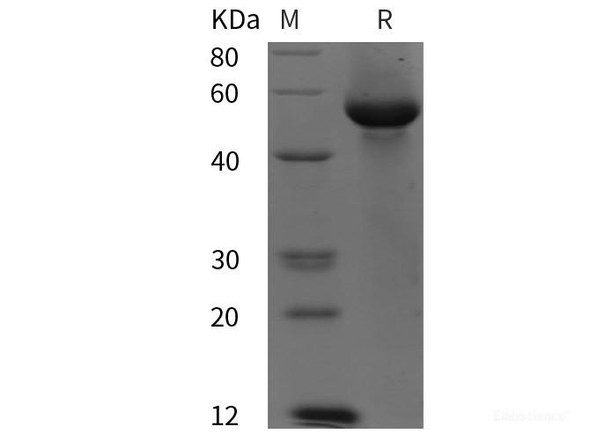| Sequence: | Phe 170-Thr 428 |
| Accession: | P56817 |
| Storage: | Generally, lyophilized proteins are stable for up to 12 months when stored at -20 to -80°C. Reconstituted protein solution can be stored at 4-8°C for 2-7 days. Aliquots of reconstituted samples are stable at < -20°C for 3 months. |
| Shipping: | This product is provided as lyophilized powder which is shipped with ice packs. |
| Formulation: | Lyophilized from sterile PBS, pH 7.4. Normally 5 % - 8 % trehalose, mannitol and 0.01% Tween80 are added as protectants before lyophilization. Please refer to the specific buffer information in the printed manual. |
| Reconstitution: | Please refer to the printed manual for detailed information. |
| Background: | Beta-site APP-cleaving enzyme 1 (BACE1) is an aspartic-acid protease important in the formation of myelin sheaths in peripheral nerve cells. In the brain; This protein is expressed highly in the substantia nigra; locus coruleus and medulla oblongata. Strong BACE1 expression has also been described in pancreatic tissue. BACE1 has a pivotal role in the pathogenesis of Alzheimer's disease. In Alzheimer's disease patients; BACE1 levels were elevated although mRNA levels were not changed. It has been found that BACE1 gene expression is controlled by a TATA-less promoter. The translational repression as a new mechanism controlling its expression. And the low concentrations of Ca(2+) (microM range) significantly increased the proteolytic activity of BACE1. Furthermore; BACE1 protein is ubiquitinated; and the degradation of BACE1 proteins and amyloid precursor protein processing are regulated by the ubiquitin-proteasome pathway. It has also been identified as the rate limiting enzyme for amyloid-beta-peptide (Abeta) production. |



